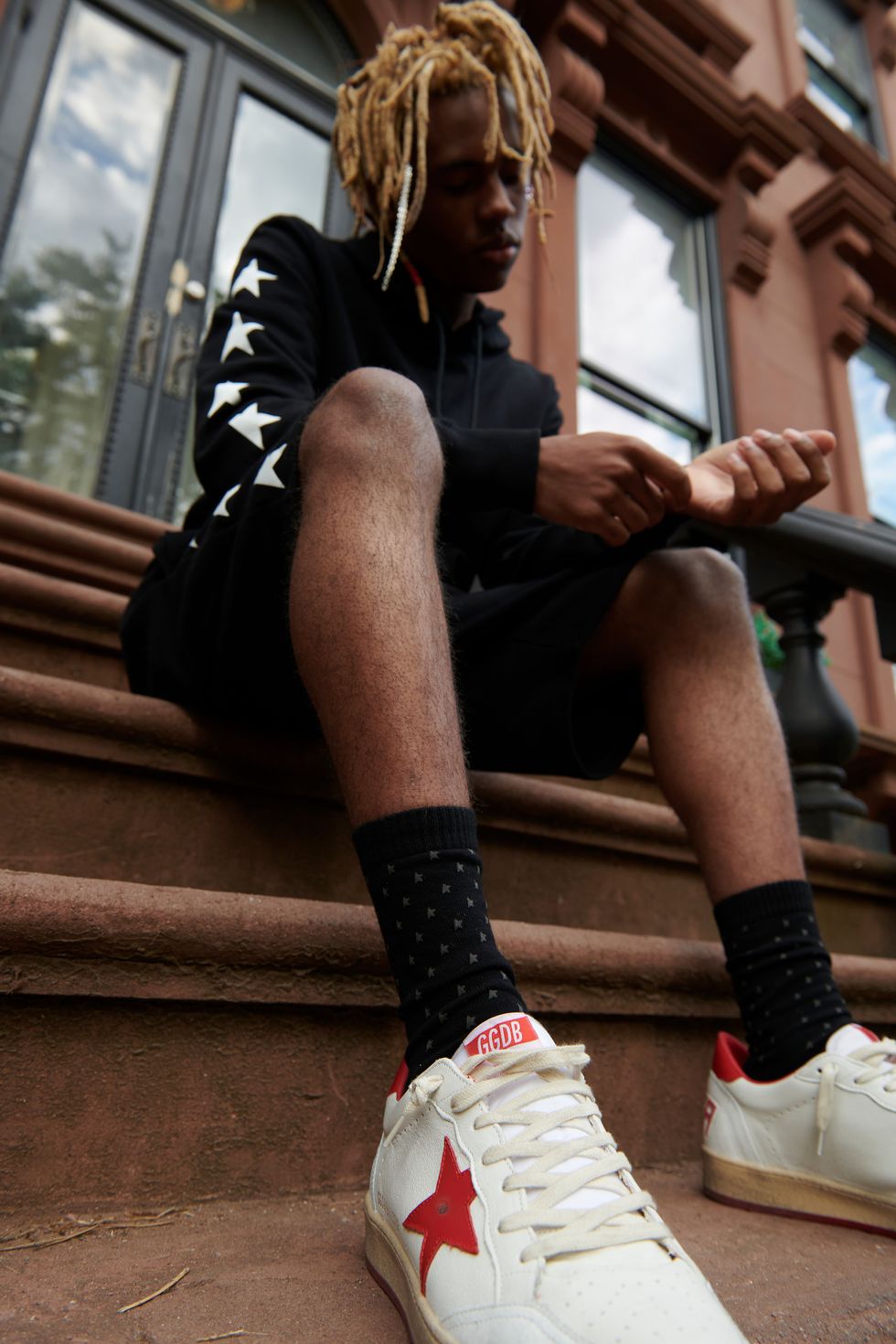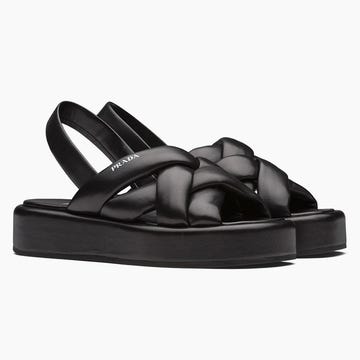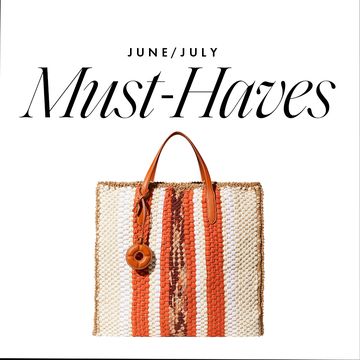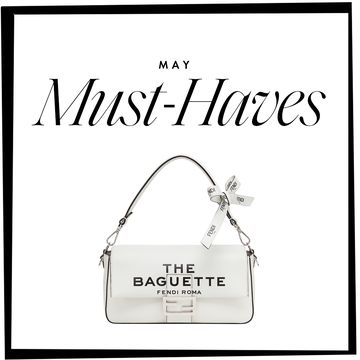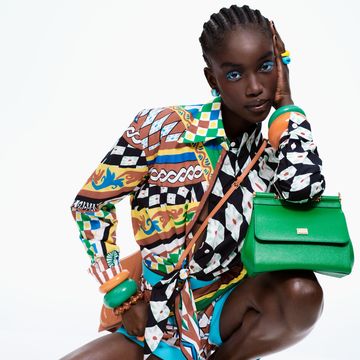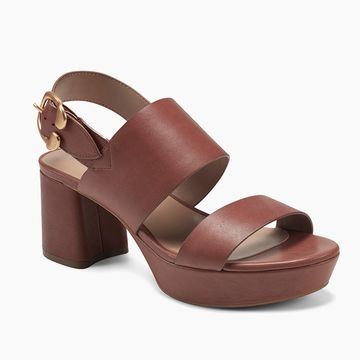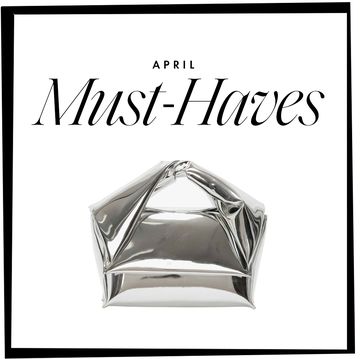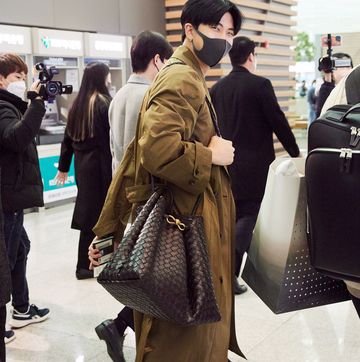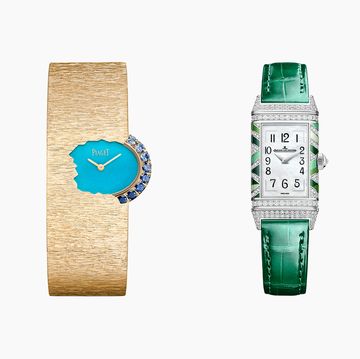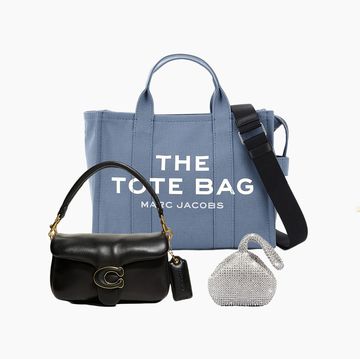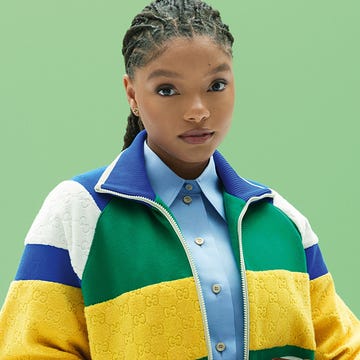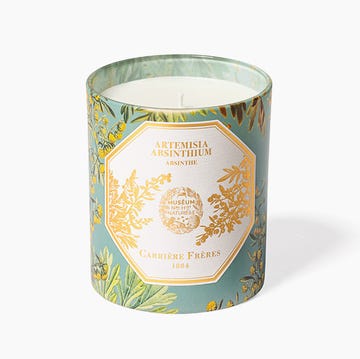Over the past 11 days, stars descended on Venice, Italy for the city’s annual international film festival. With them, they brought plenty of fashion that rocked social media to the core (cue Zendaya in liquid-leather Balmain, Timothée Chalamet in sparkly Haider Ackermann, and Anya Taylor-Joy in Mattel pink Dior couture). And while the silver screen vanguard has indeed shone brightly, so too has another fashion force: Golden Goose, the Veneto-founded sneaker and apparel label, which hosted a 20th birthday bash in the heart of Serenissima last week to mark its milestone anniversary.
It was a clever sleight of hand for Golden Goose to hold its first major event during the festival; after all, the label and Hollywood have a longstanding history, and the brand certainly owes some of its success to deep fandom amongst A-listers. Dozens and dozens have been spotted in the (often divisive) scuffed-up tennis shoes over the past two decades, including Michelle Obama, Taylor Swift, Selena Gomez, Megan Fox, and countless more. Golden Goose’s latest Star campaign, shot in New York, features resident cool kids Kailand Morris, Langley Fox, Leyna Bloom, Marta Pozzan, and Tommy Dorfman. In 20 short years, this once little enterprise—founded by Francesca Rinaldo and Alessandro Gallo—is now valued at over $1 billion.
Yet Golden Goose’s real popular power is sourced in its now instant recognition: the company led the way in bringing designer sneakers to the market (which are now ubiquitous, from Alexander McQueen to Zegna and back), as well as introducing consumers to a “dirty,” pre-distressed look. It’s perhaps Golden Goose’s single most debated-yet-lauded quality: What’s so compelling about the imperfection? Why on earth would anyone pay half a thousand dollars for shoes that appear used and tattered?
Silvio Campara, Golden Goose’s CEO, speaks to the unlikely allure. “When the company turned 15 years old, we opened our first boutique in Milan. We started to get new customers, coming from Prada, coming from Louis Vuitton, coming from Gucci. They were like, ‘These are dirty, how come?’” He pauses to smile. “I remember it clearly. And what we’ve tried to do, and tried to say, is that everyone may have their own reason for why the shoes are the way they are. They are meant to be part of life, and life is not glossy. I see Golden Goose as a platform. We are your neighbor. And a neighbor, by definition, is relatable. It’s not about being polished and perfect.”
That sense of the dressed-down and the familiar is certainly part of the Golden Goose mystique. Another, and this is not widely known, is that each and every pair of shoes is still made by hand in the Veneto region. For a company with well over $300 million in annual revenue and over 120 corporate-owned stores, it’s a remarkable feat to maintain that level of commercial scale with true, time-tested artisanship.
Campara also says that the universal appeal of Golden Goose—and why people will spend a few hundred dollars per pair—is that, at its baseline, it is democratic in its inspiration. “Our two original founders, Francesca and Alessandro, used to travel the world. They found influences in every single thing. A beautiful fruit. A skater in Venice, California—the other Venice! A bookstore. Old photographs. Unique color pairings. This is how Golden Goose started and this is how it will continue.”
In Venice, that amalgamation was on full view. This year, Golden Goose collaborated with Cory Juneau, a skateboarder who won bronze at the Tokyo Olympics (he competed at the games while wearing the brand). Juneau gave a special performance in a rafted bowl off of San Giorgio island, soundtracked by DJ Brina Knauss. Campara would mention Golden Goose’s newest store, also in Milan, where an entire program of customization and personalization services is available (not to mention the store’s Instagram-ready content creation element, too). As the night continued, guests were treated to a dinner party at Ca’ da Mosto, an ancient palace owned by Gallo, where another performance, this time by Mafalda, ensued.
“Twenty years is not an arrival point,” concludes Campara. “It’s a starting point. We’re really about reflecting a spirit of freedom, a spirit of taking your shoes with you wherever you go and discovering more of what life has to offer.”


